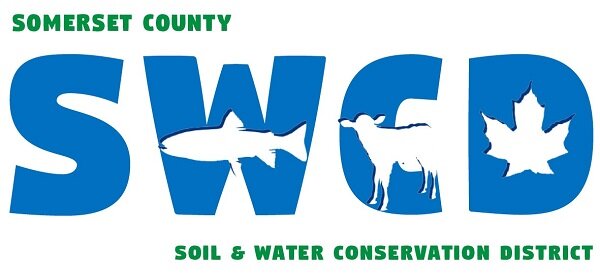New Emergency Order Area Announced as Invasive Emerald Ash Borer Continues Spread into Central Maine
For more information contact: Jim Britt at: Jim.Britt@maine.gov
AUGUSTA, Maine - Maine Department of Agriculture, Conservation and Forestry's (DACF) Maine Forest Service (MFS) announced the expansion of its Emergency Order restricting the movement of ash trees, green ash waste, ash firewood, and any other materials that may be a means of emerald ash border (EAB) transportation. The expansion follows the discovery of EAB infestations in Corinna and Newport in Penobscot County and Andover and Woodstock in Oxford County. The infestations are suspected to be the direct result of human movement of EAB.
The expanded Emergency Order covers Androscoggin, Kennebec, Knox, Lincoln, Sagadahoc, and Waldo Counties and parts of Aroostook, Franklin, Oxford, Penobscot Piscataquis, and Somerset Counties. The expansion is in addition to areas described in the existing state quarantine, Maine DACF, Agriculture Rules, Chapter 275, which includes regions of Maine and other states and Canada.
Regulated ash items include:
All life stages of the EAB
Rooted ash (Fraxinus spp.) for planting (excluding mountain ash)
Hardwood firewood that has not been certified heat treated
Ash logs (i.e., roundwood and pulpwood) and green lumber from ash
Frequently Asked EAB Questions
Q: What is MFS's next step?
A: MFS will coordinate listening sessions in April to gather input on EAB regulations in Maine. The sessions will be hybrid, allowing for in-person and online participation. Preliminary plans include meetings in Augusta, Old Town, and Houlton. The MFS calendar of events will list exact locations, dates, and times. Interested parties should subscribe to receive EAB-related news.
Q: How do we slow the spread of EAB?
A: We help slow the spread of EAB and other invasive forest pests using local and certified heat-treated firewood. Everyone is asked to encourage others to do the same and to learn and follow best management practices when handling ash in regulated areas.
Q: What are the signs of EAB?
A: Woodpeckers feeding on overwintering larvae create bright white spots called blonding. In Newport, an alert arborist discovered the woodpecker damage and contacted MFS. In Andover and Woodstock, MFS crews found the damage during routine surveys. Everyone is asked to report suspected EAB damage by emailing locations and photos to foresthealth@maine.gov.
Q: How does this impact the firewood movement from out of state into Maine?
A: The ban on the movement of untreated firewood from out-of-state into Maine remains. Many tree-killing insects and diseases, in addition to EAB, can be moved with firewood. Everyone who burns firewood is asked to purchase local firewood (buy it where you burn it) and certified heat-treated firewood.
Q: Do I need to worry about spreading EAB if I'm only moving ash tree products within the emergency order or quarantine area?
A: Everyone should be concerned with the future of ash trees in Maine. MFS and its partners encourage everyone involved with moving ash tree material within the regulated areas to follow Best Management Practices to reduce the spread of EAB.
Q: Where can I find more EAB information?
A: The MFS EAB webpage is the best resource for everyone concerned about EAB spread in Maine. Email questions about EAB and the Emergency Order to foresthealth@maine.gov or call (207) 287-2431.
More information on firewood can be found on the Maine Forest Service firewood webpage and dontmovefirewood.org. Watch EAB detection in Maine.

